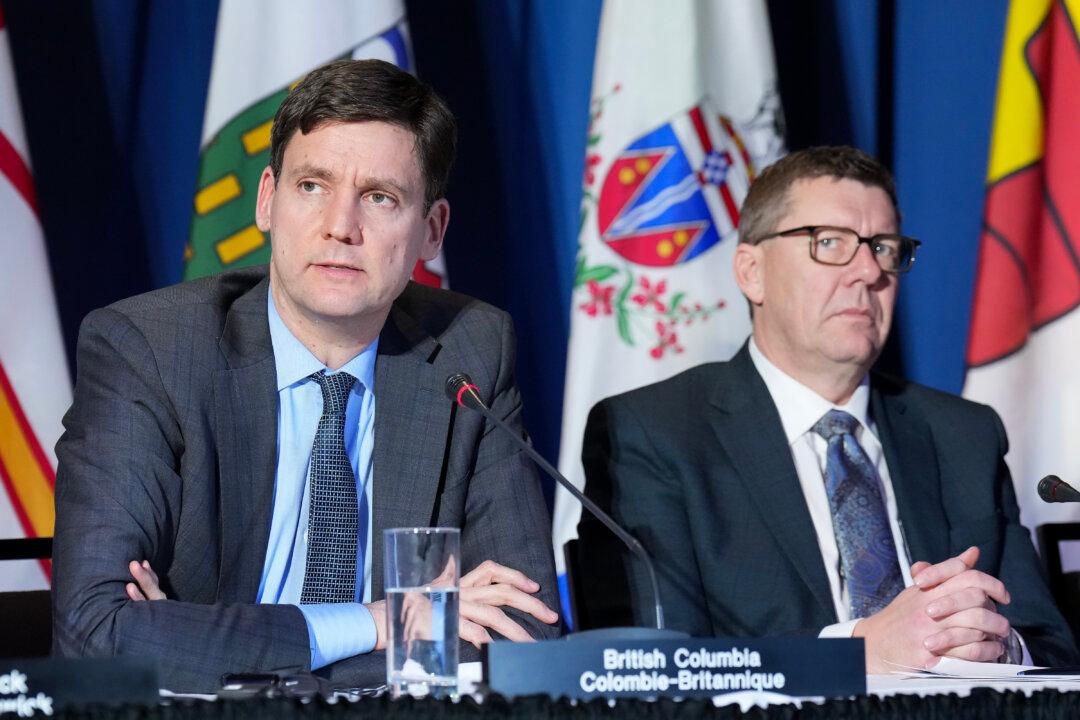B.C. Premier David Eby says leadership in responding to the incoming U.S. administration’s tariffs threat has fallen to Canada’s premiers given the current “state of the federal government” following Prime Minister Justin Trudeau’s resignation announcement.
Eby made the remarks during a press conference on Jan. 7, where he announced premiers would meet the following day to plan a response to Trump’s tariffs, including a trade mission to Washington, D.C.





